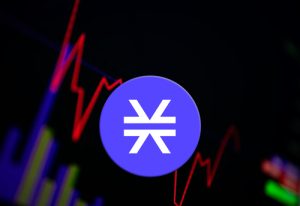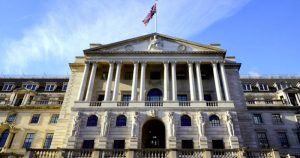South Korean Banks to Follow New Crypto Restrictions

Share this article
South Korea is introducing new banking restrictions to regulate crypto exchanges. The country’s bankers association will also hold a meeting to discuss new rules for reducing their liability on servicing crypto businesses.
South Korea Escalates Crypto Regulation
South Korea is bringing in new regulations for banks serving crypto customers.
On Sunday, the Financial Services Commission (FSC) announced that banks must classify crypto clients as “high-risk” and make them subject to stringent monitoring and KYC rules. The newly proposed FSC guidelines also require banks to report high-volume transactions from suspicious entities to the authorities.
The country’s banks will be required to report suspicious transactions to the authorities and authorize Know Your Customer (KYC) compliance before partnering with crypto exchanges.
A Korea Times report added that banks are looking for ways to mitigate the regulatory risks from servicing crypto exchanges. The Korea Federation of Banks has called a meeting to discuss new rules for exchanges to protect against crypto-related liability.
Crypto exchanges in South Korea are also required to seek a register with the Korea Financial Intelligence Unit (KoFIU), an anti-money laundering state agency, before Sep. 24, 2021. After that, the intelligence unit will review the exchange activities for three months.
According to the report, only four out of 60 exchanges operating in the country currently implement real-name identification. Others operate on a pseudo-name basis for clients.
The report also raised concerns that regulators may restrict the cryptocurrency listings to weed out lower cap coins during the registration process. It defined these coins as those “encompassing almost all cryptocurrencies except for a few top-traded ones.”
South Korea has been favorable to cryptocurrencies over the years. However, the recent euphoria in crypto marked the return of the so-called “kimchi premium,” which was a price increase of about 26% for cryptocurrencies. The premium attracted regulatory attention, leading the country to crack down on illegal trading activity across foreign exchanges. International organizations like FATF have also strongly recommended implementing KYC rules and transaction monitoring in recent years.
Share this article
The information on or accessed through this website is obtained from independent sources we believe to be accurate and reliable, but Decentral Media, Inc. makes no representation or warranty as to the timeliness, completeness, or accuracy of any information on or accessed through this website. Decentral Media, Inc. is not an investment advisor. We do not give personalized investment advice or other financial advice. The information on this website is subject to change without notice. Some or all of the information on this website may become outdated, or it may be or become incomplete or inaccurate. We may, but are not obligated to, update any outdated, incomplete, or inaccurate information.
You should never make an investment decision on an ICO, IEO, or other investment based on the information on this website, and you should never interpret or otherwise rely on any of the information on this website as investment advice. We strongly recommend that you consult a licensed investment advisor or other qualified financial professional if you are seeking investment advice on an ICO, IEO, or other investment. We do not accept compensation in any form for analyzing or reporting on any ICO, IEO, cryptocurrency, currency, tokenized sales, securities, or commodities.
See full terms and conditions.
South Korean Parliament Legalizes Bitcoin Trading
The National Assembly of South Korea unanimously approved what could be the official entry of cryptocurrency trading and holding into the nation’s legal system. Cryptocurrency Trading Is Now Legal in…
What is Polygon (MATIC): Ethereum’s Internet of Blockchains
In terms of both decentralized app (DApp) development and adoption, no blockchain has been more successful than Ethereum (ETH). But despite its relative success, the Ethereum network still contains several…
Binance Sets Sights On South Korea
Following South Korea’s moves to embrace the cryptocurrency market, crypto exchange giant Binance has announced plans to expand into one of the world’s top markets for Bitcoin (BTC) and Ether…
After Two Police Raids, Bitcoin Exchange Bithumb Up for Sale
Bithumb, the largest cryptocurrency exchange in South Korea, is allegedly up for sale to the highest bidder, according to the South Korean news outlet Herald. Responsible for more than 50%…














